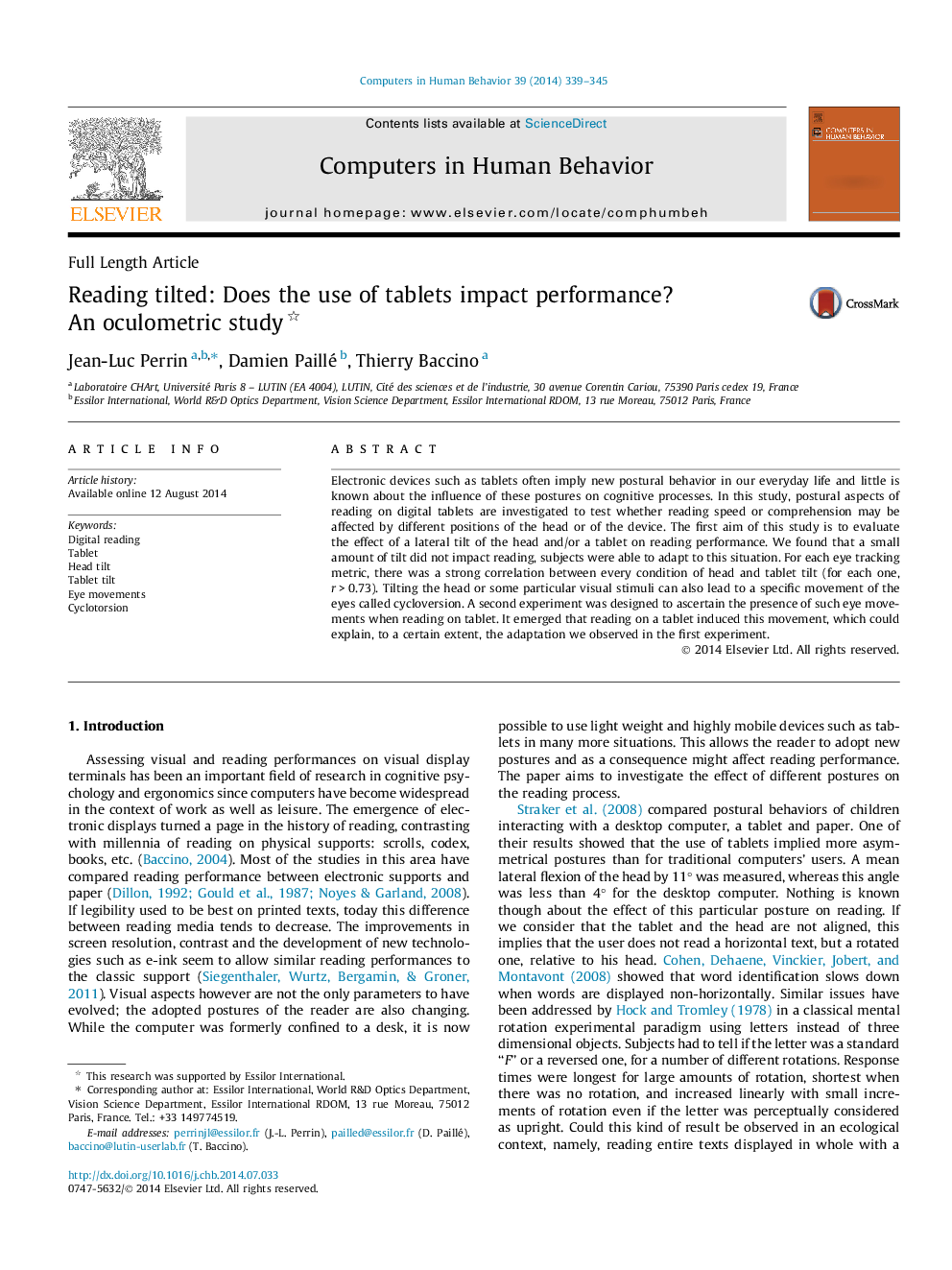| Article ID | Journal | Published Year | Pages | File Type |
|---|---|---|---|---|
| 6838882 | Computers in Human Behavior | 2014 | 7 Pages |
Abstract
Electronic devices such as tablets often imply new postural behavior in our everyday life and little is known about the influence of these postures on cognitive processes. In this study, postural aspects of reading on digital tablets are investigated to test whether reading speed or comprehension may be affected by different positions of the head or of the device. The first aim of this study is to evaluate the effect of a lateral tilt of the head and/or a tablet on reading performance. We found that a small amount of tilt did not impact reading, subjects were able to adapt to this situation. For each eye tracking metric, there was a strong correlation between every condition of head and tablet tilt (for each one, r > 0.73). Tilting the head or some particular visual stimuli can also lead to a specific movement of the eyes called cycloversion. A second experiment was designed to ascertain the presence of such eye movements when reading on tablet. It emerged that reading on a tablet induced this movement, which could explain, to a certain extent, the adaptation we observed in the first experiment.
Related Topics
Physical Sciences and Engineering
Computer Science
Computer Science Applications
Authors
Jean-Luc Perrin, Damien Paillé, Thierry Baccino,
